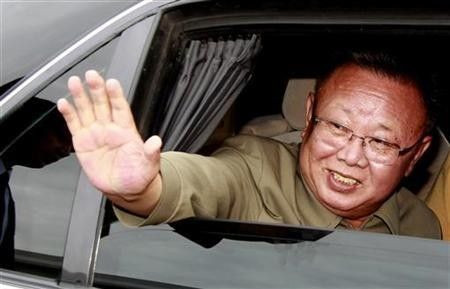Kim Jong-il's Death Mystery: Was it Kept a Secret for 48 Hours Due to Foul Play?

The secrecy shrouding the sudden death of Kim Jong-il does not surprise many, given the adamantly reclusive politics practiced by the personality cult leader of North Korea.
The isolated Asian nation has achieved what is considered almost impossible under the watchful eyes of neighboring South Korea and the U.S. Until the official Korean Central News Agency decided to announce the death of Kim, two days after it happened, South Korean and U.S. intelligence officials had absolutely no clue that something momemtous was afoot.
Intelligence agencies, equipped with high-tech spy satellites and technology to intercept telecommunications, didn't even suspect something was wrong in Pyongyang, the New York Times reported, quoting top U.S. officials directly involved in nuclear negotiations with the North Korean government.
The state media announced Kim's death, 48 hours after keeping it a secret: Dear Leader Kim Jong Il had received medical treatment for his cardiac and cerebro-vascular diseases for a long period. He suffered an advanced acute myocardial infarction, complicated with a serious heart shock, while traveling by train on the morning of 17 December, Juche 100 (2011) for a great mental and physical strain caused by his uninterrupted field guidance tour for the building of a thriving nation. Every possible first-aid measure was taken immediately but he passed away at 08:30 hours on 17 December. An autopsy on 18 December fully confirmed the diagnosis of his diseases.
Kim didn't die in the confines of one of his secretive mansions; he died aboard an armored train heading to the outskirts of Pyongyang. Yet intelligence services worldwide failed to catch a glimpse of the presumable panic among the North Korean government officials. Why?
Ever since Kim had a debilitating stroke in 2008, North Korea had undertaken elaborate measures to keep the outside world ignorant of his deteriorating health.
Dr. Francois-Xavier Roux, the French neurosurgeon who helped Kim recover from the stroke, told the Associated Press that only close family knew Kim was sick, but the message didn't get passed to the public.
Kim's heir-apparent Kim Jong-un visited his sick father regularly but he never spoke to anyone of Kim Jong-il's condition.
Suspicion of Foul Play
Allegations of foul play in Kim's death are surfacing in the Koreas and the international media. According to GlobalPost, Koreans suspect that Kim fell victim to his political opponents.
The big question is whether this death is foul play, Shim Jae-hoon, a veteran analyst of North Korean, affairs told GlobalPost. It took an unusually long time to make this announcement.
Kim Jong-un, in his early 20s and now hailed as the Great Successor, was hardly in the public sphere and is virtually an unknown figure in North Korea. The sudden death of his father has put Jong-un in a difficult position leading a country grappling with food shortages and nuclear negotiations.
Unconfirmed reports allege that Jang Song Taek, Kim's brother-in-law, who apparently ran the show behind the scenes, would profit greatly from the current political uncertainty.
© Copyright IBTimes 2024. All rights reserved.






















